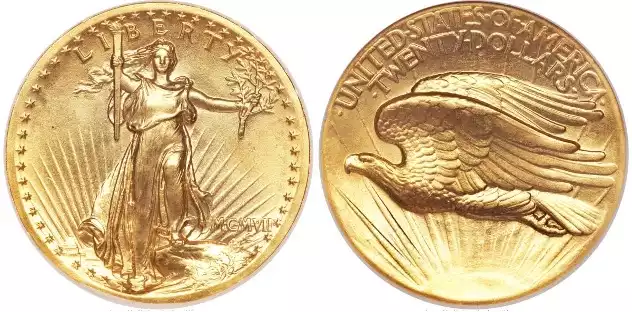The Practical Impossibility of Confiscating Gold
News
|
Posted 10/02/2023
|
19294
Some people worry about the potential for gold confiscation, but how realistic would a government led confiscation be? Many point to the 1933 ‘confiscation’ in the United States, but realistically citizens still voluntarily sold their gold back to the Federal Reserve in exchange for paper of the day.
Gold in the United States prior to 1933 was almost universal as it was currency, indeed the USD was backed by gold, not Fiat as it is now. At that time, a 0.96oz gold double eagle had a face value of $20. There were $10 coins, $5 coins as well as a range of silver coins. The government threatened fines and imprisonment, but citizens voluntarily came to collection points to trade in their bullion for fiat federal notes. At no time did agents of the government go ‘door to door’. A testament to just how many citizens didn’t bend to government pressure, is how many Pre-1933 Gold Coins are still floating around.

Let’s play it out for today. The government decides they want (or more relevantly, need) the gold held by private Australian citizens. What needs to happen? There is an announcement or an internal memo which is leaked, and you read about it on our Daily News. Then a new government department, or a section of an existing department is founded. They need to organise a hierarchy with bureaucrats absorbing taxpayer funds at a rate of 200k+ per annum. Then they bring in a HR team, they make sure that various cross-sections of society are equally represented. They will also need to engage a marketing agency to develop a national TV ad campaign to convince the public at large that their forcible interference in our lives is “for the country’s good”, or words to that effect. Think too of the circumstances within which they all of a sudden needed gold. There would be a strong desire not to elicit mass panic from the people amid such economic turmoil.
Regardless, the newly minted government employees then need to go house to house asking people if they have gold or not. If people say no, but the government had reason to believe that gold was held at that house, they would need metal detectors. It might take a couple of hours to check each house and who exactly is going to have the authority to do that job?
Realistically, the government is generally better served by threatening citizens into giving in. If the Australian Government threatened fines and imprisonment to anyone found holding gold bullion, then undoubtedly, a lot of people would trade it in. They would only be able to fine the people who hadn’t developed, say, embarrassing gambling habits and had to sell all of their holdings to pay debts; just as an example, of course.
Realistically, it would be much easier to just dig new gold out of the ground.
And therein lies the crux of this. If our government needed money, the constitution only allows for confiscation of gold with ‘market value’ being paid. If they needed money, it's a zero sum game on gold but a few trillion dollars in managed super funds on offer, begging to be nationalised. We wrote to this on 31 August 2022 in HOW SAFE IS YOUR SUPER & WHY GET AN SMSF?. It is a must read if you missed it.
If they needed gold (if say there was a new global currency that required gold reserves to be a party to), Australia is the 2nd largest producer in the world and could mine nationalised gold at a rate far quicker and more effectively than that outlined above.
For customers worried about government overreach, but are holding themselves back from buying bullion due to concerns about confiscation, it is worth also considering the other options. Property can and has been confiscated, managed super funds (not self managed…) have been confiscated, bank accounts have and are confiscated/locked even now, and physical cash can be devalued or its use outright banned. In precious metals, you have the one thing that can’t be taken away from you. It's been that way for 5000 years.